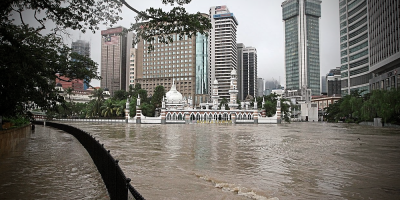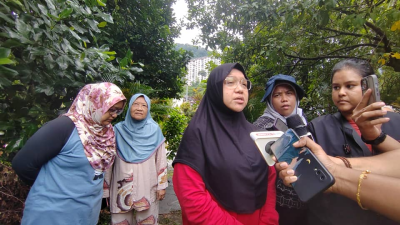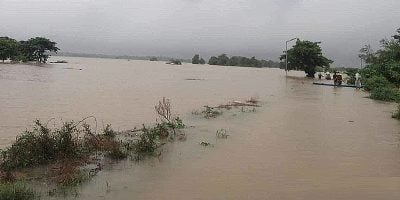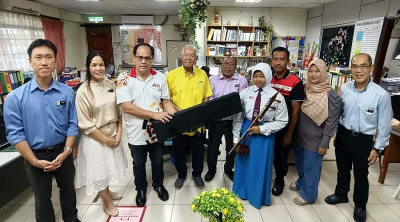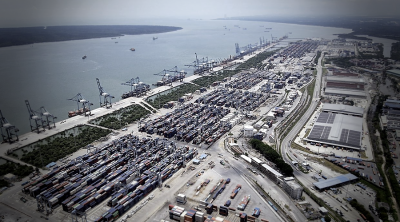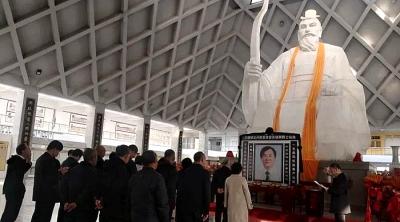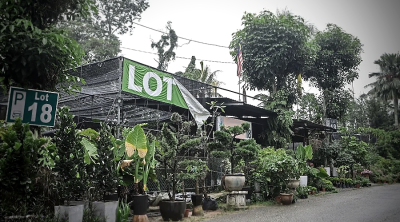And since we have the precedents, we believe the SPR should know how to pick an “auspicious” date for the upcoming election.
There is no denying that having the next election in the rainy season is almost inevitable, but at least the election commission can pick a nicer day in an overall bad season!
The question of when the parliament will be dissolved is no more pertinent now following the caretaker PM’s announcement at 3 p.m. Monday.
What concerns us next is when we will get to vote.
The monsoon season is coming very soon, and if by chance a date gloomed with massive downpours and submerged streets has been picked, voters in flood-stricken areas may have to sail their way to polling stations in a driftwood or sampan.
Out of disappointment, His Majesty Yang di-Pertuan Agong had no choice but to consent to PM Ismail’s request to dissolve the parliament, as highlighted in a Palace statement. The King also advised the SPR to hold the election as soon as possible because the northeast monsoon is set to strike beginning mid-November.
We have checked through the records and found that other than Umno president Ahmad Zahid Hamidi who has insisted to rush the parliament dissolution to pave way for fresh election, all the rest in the country – from the Met, Tun Mahathir, DAP’s Anthony Loke, PKR’s Nurul Izzah and even Umno’s Khairy Jamaluddin – have concordantly opposed to a “monsoon election.”
In the past, we used to have an average rainfall of between 300 and 350 mm in November and December on Peninsular Malaysia, but the Met has predicted a high of 450 to 1,000 mm rainfall for the same period this year in the east coast states of Kelantan and Terengganu! Heavy thunderstorms and floods are almost assured from mid-November on.
Tun Mahathir said it is very dangerous for voters to come out and vote in the rainy season, and there’s no need to have the election in the monsoon season and put the safety of the public at risk in the first place.
Anthony Loke said the Met had already predicted flood risks in coming months and questioned whether there was this urgency to hold the election in the middle of the monsoon season.
Meanwhile, Nurul Izzah said the ruling party’s insistence to have the election in the rainy season is extremely irresponsible and will force the rakyat to make the tough choice between exercising their democratic right and safeguarding their own lives.

The parties represented by the three people above were victims of betrayal within the PH coalition which cost them the administrative powers. By right these people should be much more eager than anyone else to have the election fast in order to “return the mandate to the people.”
These PH leaders claim that they are opposed to an immediate election to avoid possible loss of innocent lives while voting during the floods, but their rivals argue that they have no confidence in themselves, saying election now may not be unfavorable to the opposition. Of course, only they themselves will know what they are actually up for!
Now that the parliament has already been dissolved on October 10, any argument about whether the election should be held in the middle of the monsoon season is no longer meaningful. What we can do now is to go to the polls before the arrival of the monsoon season, as the King has directed. The rainy season will start next month and will slowly peak after mid-November.
There are only two dates to choose from if an election has to be held before mid-November on a weekend, namely November 5 and 12. But the thing is, November 9 to 11 happens to be the high tide that could cause severe floods if it rains heavily during those few days, causing dams and rivers to overflow and seawater intrusion.
We mustn’t overlook the menace of the high tide. On Tuesday morning, even in the absence of any rain, the streets of Klang were submerged in water as a result of seawater intrusion. Imagine the same happens on the east coast in the middle of next month!
There are a total of 27 days from the dissolution of parliament on October 10 to the polling day on November 5 (supposedly). The question is: do we have enough time considering the campaign period from nomination to polling day, as well as the time needed for registration of postal voters and handling of postal ballots?
Past experiences tell us that should be enough.
We had 15 days in 1986, 17 days in 1990, 19 days in 1995 and 1999, 17 days in 2004 and 24 days in 2008. If we were to include the three general elections from 1974 to 1982, there were nine out of 14 general elections that were completed within 27 days of parliament dissolution.
As such, it shouldn’t be a problem for the SPR to fix the polling date on November 5 or even a week earlier.
And since we have the precedents, we believe the SPR should know how to pick an “auspicious” date for the upcoming election.
If the election is dragged until after mid-November when the year-end monsoon season begins, the EC will only find itself becoming the target of public wrath.
ADVERTISEMENT
ADVERTISEMENT








